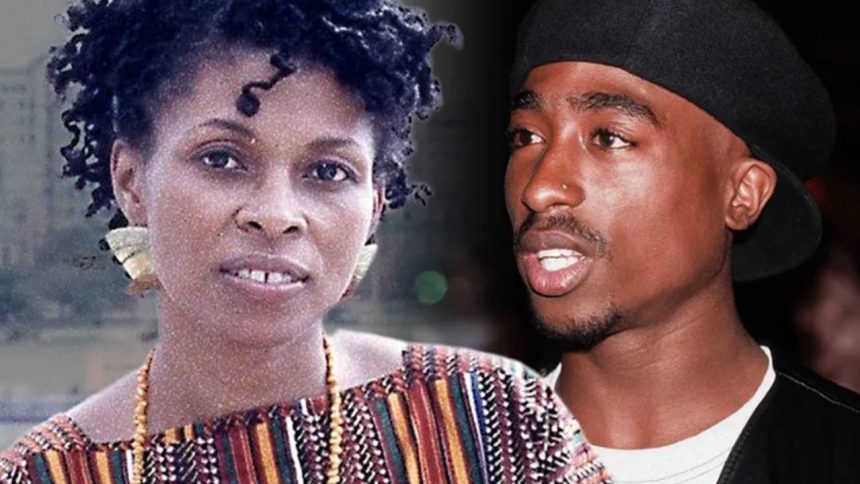In the fabric of Tupac Shakur’s life, a family deeply committed to the struggle for Black liberation forms the central thread. A common question arises: Was Assata Shakur Tupac’s mom? The answer is no. Tupac’s mother was the formidable Afeni Shakur, a Black Panther Party member who raised him.
Assata Shakur was intimately connected to the family as Afeni’s comrade, becoming Tupac’s godmother and step-aunt, a relationship that wove her directly into his revolutionary upbringing. Their connection was not just one of blood and ceremony but of shared ideology and political purpose. In a significant update, this story has reached its conclusion, as Cuban authorities confirmed that Assata Shakur passed away in Havana on September 25, 2025, at the age of 78 due to health conditions and advanced age.
A Family Forged in Struggle
The bond between Assata and Tupac was rooted in the political ferment of the Black Panther Party. In the late 1960s and early 1970s, both Assata and Tupac’s mother, Afeni, were active in the Party, fighting against systemic racism and injustice. It was during this time that Assata and Afeni formed a close friendship.
In her autobiography, Assata noted that Afeni was one of only two leaders in the New York chapter of the Panthers for whom she “had any respect for.” This deep mutual admiration led Afeni to ask Assata to serve as her son’s godmother, a role that placed Assata in a position of lifelong guidance and kinship. Furthermore, through Afeni’s marriage to Mutulu Shakur, another prominent activist, Assata also became Tupac’s step-aunt, solidifying her place as a central figure in his extended family.
You Might Like: What Did Candace Owens Say About Charlie Kirk?
This familial structure was surrounded by activism. Tupac’s entire world was shaped by revolutionaries. His godfather, Elmer “Geronimo” Pratt, was a high-ranking Panther wrongly imprisoned for murder. His stepfather, Mutulu Shakur, was on the FBI’s Ten Most Wanted list. Into this world, Assata Shakur emerged not just as a relative but as a living symbol of resistance. Her story was one of extreme government persecution and unwavering defiance.

Years before Tupac’s birth, she was involved in a 1973 shootout on the New Jersey Turnpike that resulted in the death of a state trooper, Werner Foerster. Assata was wounded and later convicted of murder in 1977, a charge she always denied, arguing that forensic evidence proved she could not have fired a weapon. Then, in 1979, members of the Black Liberation Army helped her escape from the Clinton Correctional Facility for Women, and she eventually surfaced in Cuba in 1984, where Fidel Castro granted her political asylum.
For the next four decades, she lived in Havana as a fugitive, with the FBI eventually placing a $2 million bounty on her head and adding her to its Most Wanted Terrorists list in 2013, making her the first woman on that list.
A Living Legacy and a Final Chapter
While Assata lived in exile in Cuba for most of Tupac’s life, her influence was a powerful undercurrent in his own art and activism. Tupac’s music often grappled with the same themes of oppression, injustice, and anger that defined Assata’s life. Her existence was proof of the severe consequences of challenging the system, a reality Tupac himself would face through his own legal battles and controversies. Her spirit resonated in the hip-hop community; Tupac himself name-checked her in his song “Words of Wisdom,” while artists like Public Enemy’s Chuck D and Common paid tribute to her, cementing her status as a folk hero for generations of activists and artists who saw her as a victim of a racist judicial system.
The long saga of Assata Shakur’s life and her unique relationship with Tupac Shakur’s legacy has now ended with her death. She died as she lived for over 45 years: in Havana, a figure both celebrated and condemned, a godmother who outlived her famous godson by nearly three decades. Her passing was confirmed by Cuba’s Ministry of Foreign Affairs and her daughter, Kakuya Shakur, closing a chapter on one of the most enduring stories of political exile. The connection between Assata and Tupac remains a poignant reminder of a family whose personal and political identities were inseparable, bound together by a relentless fight for freedom that defined their lives and continues to define their legacies.



